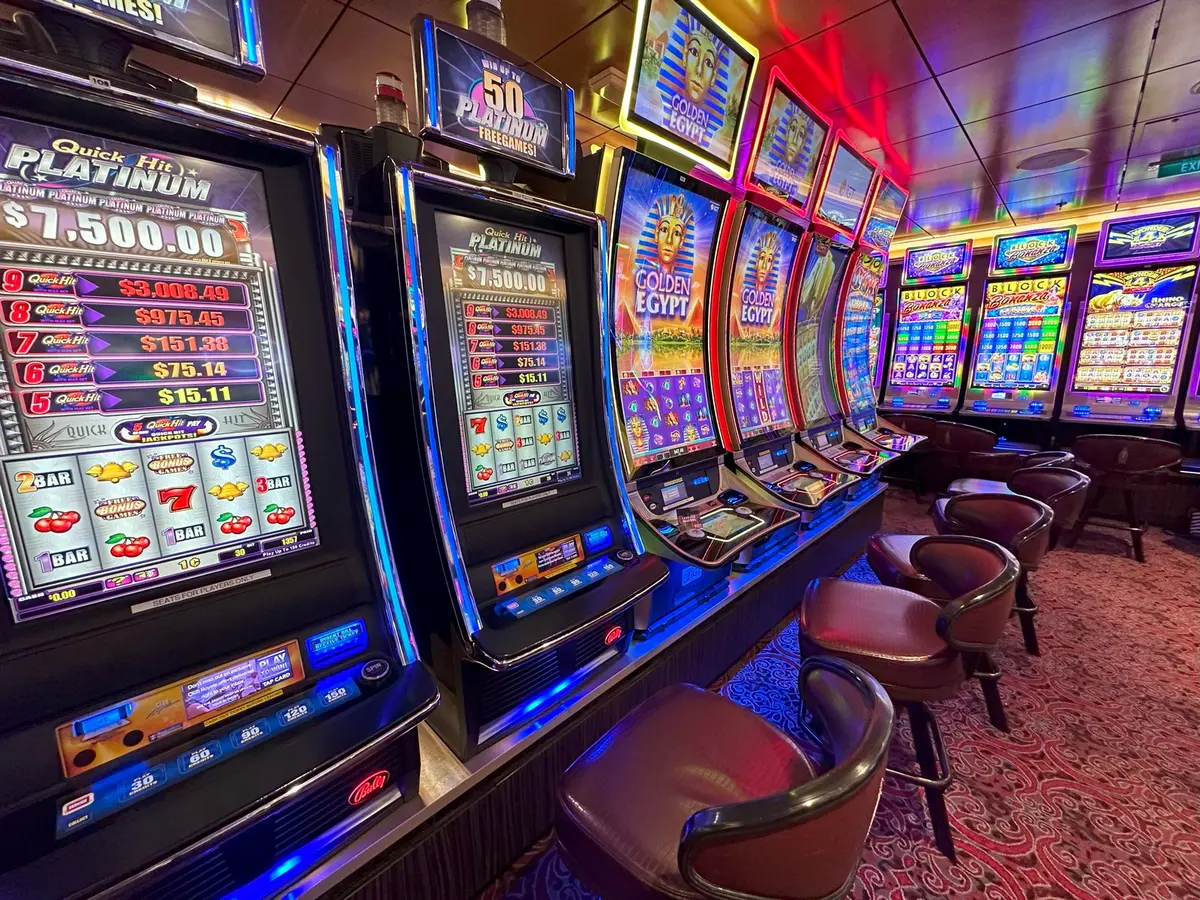A Fascinating Chronicle of Gaming Machines
The history of slot machines is a mesmerizing journey that parallels the evolution of entertainment and gambling across the generations. From their simple start in the final decades of the 1800s to growing into a fixture in gaming halls throughout the world, these games of chance have experienced notable changes. Slot machines have mesmerized players with their colorful designs, enticing concepts, and the potential of life-changing jackpots.
Originally made as analog devices with turning cylinders and a small number of images, slot machines have evolved into sophisticated tech-based games that include innovative features and dynamic components. Today, they welcome millions of players, each aspiring to win big with just the yank of a switch or the tap of a tap. Exploring the fascinating background of these machines unveils not just the tale of a popular activity, but also a mirror of social evolution and progress in technology over the ages.
One of the Origins in Slot Machines’ History
The story of slot machines begins in the late 19th century, a time when mechanical devices were increasingly popular in entertainment venues. The first true slot machine came into existence by Charles Fey in 1895, referred to as the Liberty Bell. This machine featured 3 spinning reels and 5 symbols: hearts, diamonds, spades, a horseshoe, and the legendary Liberty Bell. Players would pull a lever to spin the reels, and if the symbols aligned in a particular combination, players won a payout. Fey’s invention quickly captured the attention of gamblers and set the foundation for future developments in casino slots games.
As the concept of the slot machine gained popularity, various inventors looked to enhance Fey’s design. By the dawn of the 1900s, these machines were becoming a common sight in saloons and amusement parks. In 1907, the initial electromechanical slot machine was created by Herbert Mills, which featured a more intricate system of payout mechanisms and the iconic fruit symbols that are still linked to slots today. This evolution marked a significant shift in the gaming industry, as machines became more entertaining and user-friendly, drawing in more players.
The popularity of slot machines continued to soar throughout the first half of the 20th century, resulting in their widespread adoption in casinos across the United States. However, as legal restrictions on gambling during the Great Depression posed challenges for the industry. Many machines were outlawed, but this did not halt innovators. Instead, they adapted by creating machines that dispensed candy or gum instead of cash prizes, effectively circumventing the restrictions while still offering the thrill of a casino slots game. This creativity kept the spirit of gambling alive, setting the stage for the future resurgence of slot machines in modern casinos.

Development of Slot Machine Technology
The history of slot machines began in the closing 19th century with the invention of the initial mechanical machines. A mechanic named Charles Fey, a West Coast mechanic, presented the Liberty Bell slot machine in 1895, which boasted three spinning reels and five images: hearts, diamonds, spades, a lucky horseshoe, and the bell symbol itself. This simple yet enthralling appearance laid the groundwork for the progress of gambling slots, creating an swift draw for players seeking fun and a opportunity to earn. gavn99
As innovation advanced, so did the appearance and capabilities of gambling devices. By the central 20th era, electronic mechanical machines surfaced, incorporating electric parts to improve gameplay and amplify payout opportunities. These developments permitted for more complex features like multiple paylines and greater jackpots. The casinos adopted these innovations, causing the rise of slot machines as a major contributor of revenue within the gambling sector, fundamentally altering the slots gaming experience.
The final 20th and beginning 21st centuries introduced the age of digital technology, causing the debut of video slots. These gaming units substituted traditional reels with digital screens, enabling even more imagination in themes and gameplay features. Gamblers could now enjoy immersive graphics and sound effects, along with involving bonus rounds. The shift to internet gambling further changed the gambling world, making slots reachable to a global market whenever and everywhere, thus marking a fresh chapter in the progression of gambling device innovation.
A Cultural Impact of Gaming Machines
These gaming machines have become not only a form of leisure; they have integrated into the fabric of popular culture. Across movies and television shows to music and literature, these famous gaming machines often act as symbols of luck and risk. Films like The Casino and Ocean’s 11 prominently feature slots, portraying them as exciting yet unpredictable elements of the casino atmosphere. Their distinct attraction lies in the noise of coins clinking, the spinning reels, and the vibrant flashing lights, which together create an exhilarating atmosphere that captures attention.
Moreover, slot machines have shaped social gatherings and events, making them a focal point in casinos and gaming venues. Numerous individuals do not just visit a casino to gamble; they attend for the entire experience, which includes the social interactions and the vibrant ambiance surrounding these machines. Special contests and themed gaming nights centered around slots also showcase their popularity, fostering social connections and collective fun among players. This community aspect has contributed to the machines’ enduring popularity.
The evolution of technology has also transformed this cultural impact. Digital and online slots have expanded access to these games well beyond the walls of physical casinos. Players can now enjoy their favorite casino slots game from home or on the go, leading to the rise of virtual forums and discussion boards where enthusiasts share strategies and experiences. The ongoing innovation in game design and the inclusion of storytelling have kept the cultural significance of slot machines alive, attracting new generations of players while maintaining a connection to their cultural roots.
